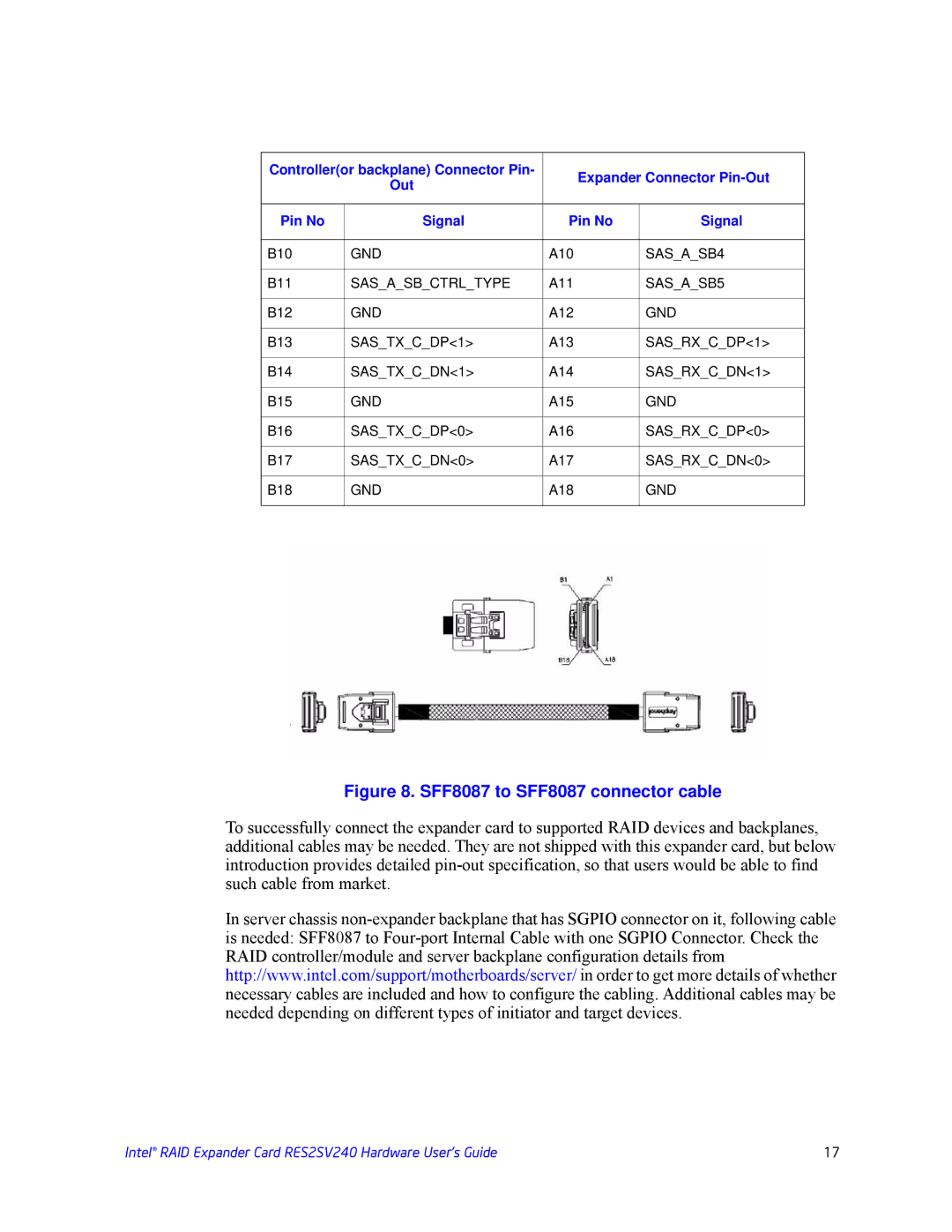RES2SV240 specifications
The Intel RES2SV240 is a versatile and robust RAID (Redundant Array of Independent Disks) controller designed to enhance storage performance and reliability for enterprise environments. This controller is specifically engineered to support high-performance, high-capacity storage arrays, providing organizations with the means to manage vast amounts of data efficiently.One of the standout features of the Intel RES2SV240 is its support for up to 24 SATA or SAS drives, offering substantial scalability for data-intensive applications. This capability is particularly beneficial for businesses that require a reliable system for large databases, data warehousing, or cloud storage solutions. The controller operates with the Intel IOP348 processor, ensuring high-speed data processing and low latency, crucial for demanding workloads.
The RES2SV240 supports various RAID levels, including RAID 0, 1, 5, 6, 10, 50, and 60. This flexibility allows IT administrators to choose the appropriate configuration based on their specific performance, redundancy, and data availability requirements. The ability to create diverse RAID configurations helps in optimizing storage management while ensuring critical data remains protected against disk failures.
Another notable characteristic of the Intel RES2SV240 is its advanced error-checking capabilities. The controller utilizes features such as CRC (Cyclic Redundancy Check) and ECC (Error-Correcting Code) to ensure data integrity, significantly reducing the risk of corruption during transactions. This reliability is essential in enterprise environments where data accuracy is paramount.
Additionally, the RES2SV240 supports hot-swappable drives, allowing users to replace failed drives without taking the system offline. This feature minimizes downtime and enhances overall system reliability. For further optimized performance, the controller includes a battery-backed write cache, which safeguards data in the event of power loss, ensuring that no transactions or information are lost.
The Intel RES2SV240 is compatible with various server operating systems, making it a flexible solution for different environments. Its management interface is user-friendly and comprehensive, providing detailed insight into storage health and performance metrics, allowing IT personnel to optimize operations effectively.
In summary, the Intel RES2SV240 RAID controller is a powerful tool for businesses seeking to enhance their data storage capabilities. With its support for a large number of drives, versatile RAID configurations, strong data protection mechanisms, and ease of management, it stands out as a reliable choice for enterprise-level storage solutions. Its robust performance characteristics make it a valuable addition to any data-driven organization.

